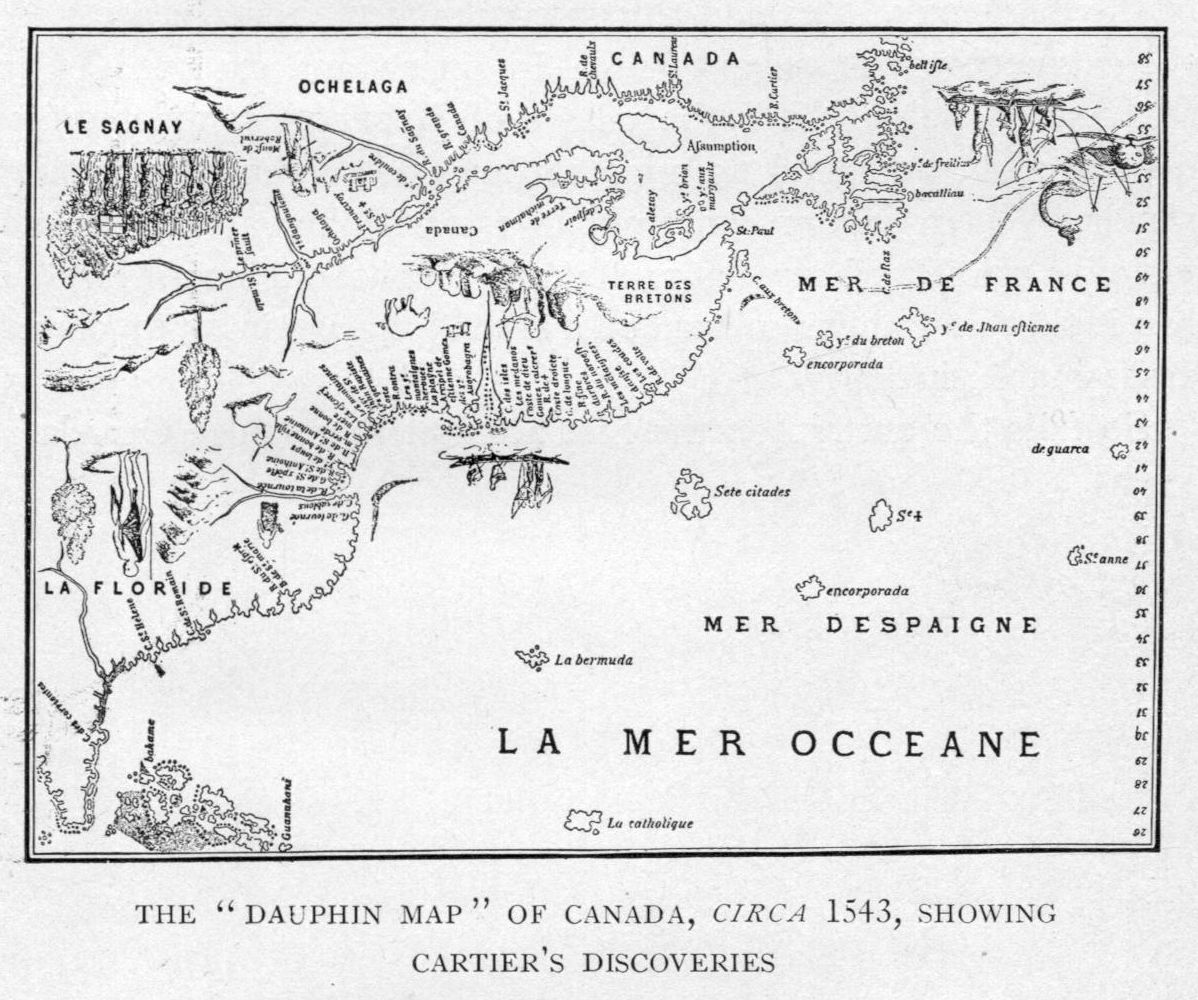
Name of Canada
While a variety of theories have been postulated for the name of Canada, its origin is now accepted as coming from the St. Lawrence Iroquoian word kanata, meaning 'village' or 'settlement'.[1] In 1535, indigenous inhabitants of the present-day Quebec City region used the word to direct French explorer Jacques Cartier to the village of Stadacona.[2] Cartier later used the word Canada to refer not only to that particular village but to the entire area subject to Donnacona (the chief at Stadacona);[2] by 1545, European books and maps had begun referring to this small region along the Saint Lawrence River as Canada.[2]
From the 16th to the early 18th century, Canada referred to the part of New France that lay along the Saint Lawrence River.[3] In 1791, the area became two British colonies called Upper Canada and Lower Canada. These two colonies were collectively named the Canadas until their union as the British Province of Canada in 1841.[4]
Upon Confederation in 1867, Canada was adopted as the legal name for the new country at the London Conference, and the word Dominion was conferred as the country's title.[5] By the 1950s, the term Dominion of Canada was no longer used by the United Kingdom, which considered Canada a "Realm of the Commonwealth".[6] The government of Louis St. Laurent ended the practice of using Dominion in the statutes of Canada in 1951.[7][8]
The Canada Act 1982, which brought the constitution of Canada fully under Canadian control, referred only to Canada. Later that year, the name of the national holiday was changed from Dominion Day to Canada Day.[9] The term Dominion was used to distinguish the federal government from the provinces, though after the Second World War the term federal had replaced dominion.[10]
Canadian[edit]
The demonym "Canadien" or "Canadian" once referred exclusively to the indigenous groups who were native to the territory.[20] Its use was extended over time to the French settlers of New France, and later the English settlers of Upper Canada.[20]
Colonial usage[edit]
New France[edit]
European explorer Jacques Cartier transcribed the Saint-Lawrence Iroquoian word (pronounced [kanata]) as "Canada" and was the first European to use the word to refer not only to the village of Stadacona but also to the neighbouring region and to the Saint Lawrence River, which he called rivière de Canada during his second voyage in 1535.[28][29] By the mid-1500s, European books and maps began referring to this region as Canada.[30]
Canada soon after became the name of a colony in New France that stretched along the St. Lawrence River.[30][31] The terms "Canada" and "New France" were often used interchangeably during the colonial period.[30]